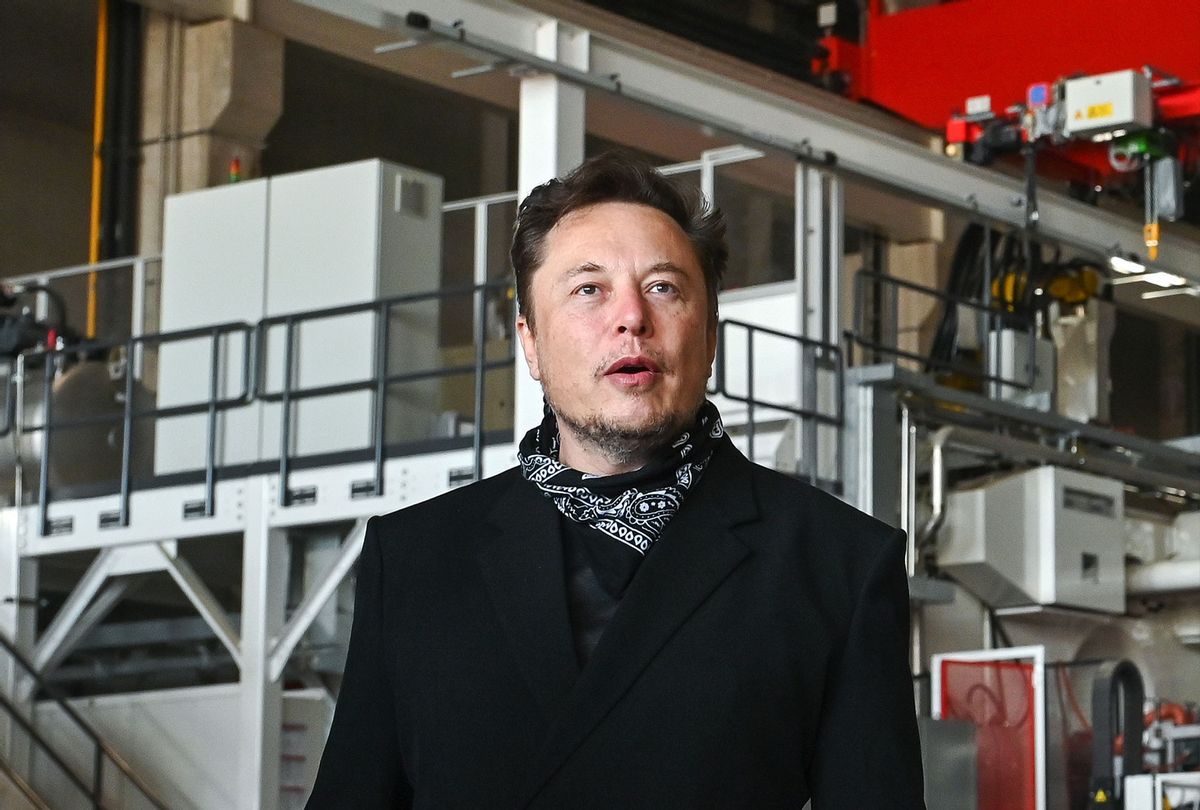Is Elon Musk actually trying to hijack your mind?
It might sound weird, but it's an understandable fear. This week, the billionaire entrepreneur and amateur sketch comedian made big news when his Neuralink Corporation posted a listing for a clinical trial director. Among the preferred qualifications for candidates for the high-level position? Experience with "Class III implantable neuromodulation devices." And once a clinical trial director in place, it can be assumed that clinical trials will soon follow.
Neuralink launched in 2017 with the promise, as the Wall Street Journal reported then, "to connect brains with computers." With Elon Musk as one of the company's founders, the reporting was from the beginning buzzy — and the subtext not-so-vaguely ominous.
Musk, after all, has been public in his concerns about the "existential" threat of AI, and his fears that "If you assume any rate of advancement in [artificial intelligence], we will be left behind by a lot." It would stand to reason, then, that the entrepreneur would be curious about outsmarting our own creations. "Elon Musk's Neuralink wants to plug into your brain," USA Today announced at the time. "Time to screen 'The Matrix,' people."
Now, with Neuralink apparently ramping up its endeavors, the concerns and the hyperbole are back. "The dystopian television show 'Black Mirror' has begun to feel less like fantasy as Elon Musk's brain-implant startup, Neuralink, gears up for human trials," wrote The Daily Beast this week. As a TechRadar headline put it: "Elon Musk's Neuralink is one step closer to putting an implant in our brains," implying that implants are all but inevitable for everyone. "In ten years' time," the author writes, "we could all be walking around with a computer in our heads."
Far be for me to undersell the unpleasantness of Elon Musk, or the appropriate unease that any Musk-related news might inspire. Some context here, however, is helpful. When TechRadar asks, "Do you want to let Elon Musk put an implant in your brain?" it creates a mental picture of the Tesla titan himself physically opening up all of our skulls, one by one, as we move through the factory conveyer belt on the way to be turned into Soylent Green. I just don't think Musk has that kind of time.
Even more significantly, we need to understand that the potential of brain-computer interfaces (or brain machine interfaces) is still mostly just potential. Writing for MIT's Technology Review in 2020, Antonio Regalado called Neuralink "neuroscience theater," saying that while the company touts the dream of being able to "see radar with superhuman vision, discover the nature of consciousness…. None of these advances are close at hand, and some are unlikely to ever come about."
While Musk can enthuse about creating a "Fitbit in your skull," the immediate and practical applications of BCI are for conditions that inhibit movement and make communication difficult, like Parkinson's and ALS. There already is exciting clinical work being done right now by scientists and medical researchers out of Massachusetts General Hospital, Stanford and other reputable institutions. Even Neuralink aims first "to help people with paralysis to regain independence through the control of computers and mobile devices," so calm down.
That's not to say that there's no need to be concerned about where all of this is heading, and who's interested in the technology. As Emily Willingham writes in her fantastic and timely "The Tailored Brain," the US Department of Defense has been spearheading neurotechnology research for several years. The applications for improved physical movement and mental health are intriguing.
"Some of it is extremely useful and legitimate and necessary," Willingham told Salon earlier this year. And some of it, because this is the Defense Advanced Research Projects Agency we're talking about, "starts to get into creepy territory." If you're worried about Grimes' ex-boyfriend — whose corporate culture sounds a lot less shimmeringly brilliant than his hype may indicate — you're really not going to love what Uncle Sam could do with this stuff.
The good news here is our brains are not the only game in town. We experience our memories and our consciousness throughout our bodies, and we are only beginning to scratch the surface of our understanding of the implications there. More than that, though, we are not simply computers, despite all the reductive Silicon Valley-speak in the world. "Our brain is not a slot machine," says Emily Willingham. "You can't pop a quarter in, pull a lever, and then just hope for the best. There are so many pathways in our brains that act together. If you affect one, you're going to be influencing the other. There's not some direct target where you just hit the bullseye and that's it." Our brains are not as easily hacked as scary headlines might initially imply, at least not yet.
But Willingham also observes in "The Tailored Brain" that we might want to consider how much of our movements and habits and desires already belong to the hive. We just happen to carry a big collection of our thoughts and ideas around on the outside. Our behavior is easy to track and our opinions are not at all difficult to tweak. Earlier this week, I found my way to a bar because the small device I held in my hand detected my location from outer space and told me, in the lilting Irish accent I had chosen for it, exactly how to get there and how long the journey would take. Then I came home and watched a video from a fashion designer on that same device, and now I can't stop seeing ads for sweaters. Or Houlihan's. That's just a few moments of a very typical day for a whole lot of us. You don't want your mind being manipulated? The horses left that barn a long time ago, when we traded our privacy for GPS and Google. The Elon Musks of the world don't have to plant a chip in your head. They're already in there.



Shares